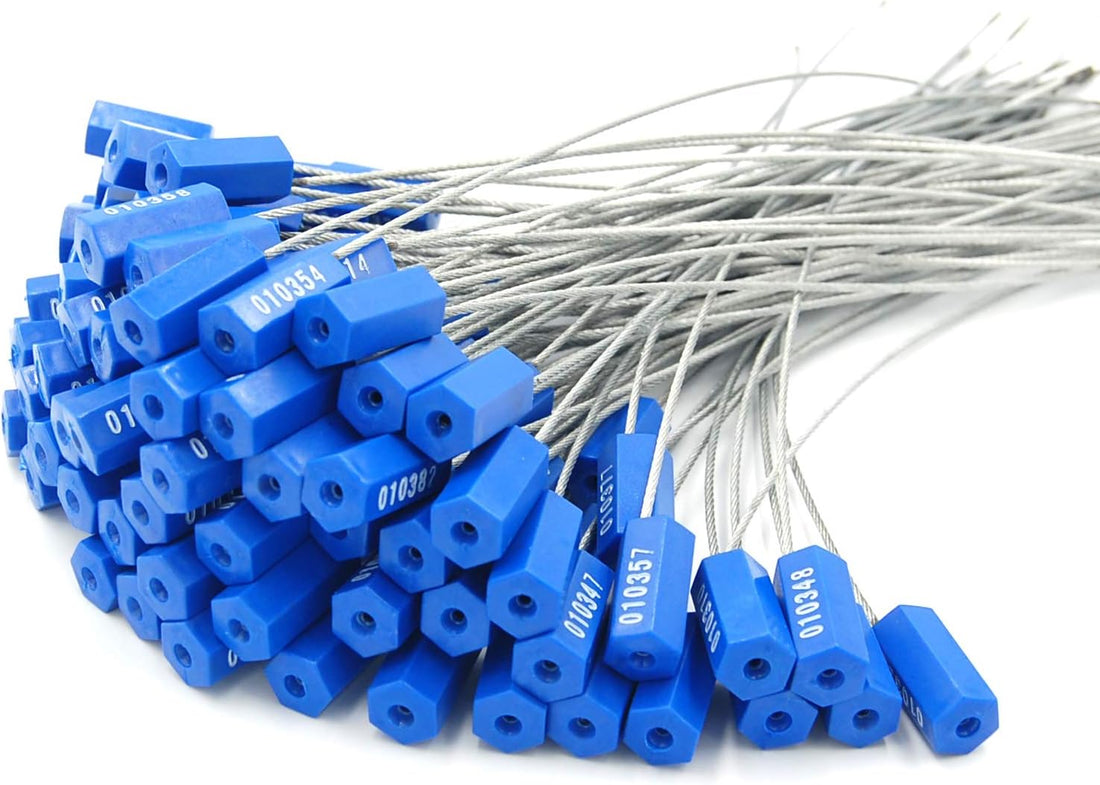You are on this page means you are looking for the right security cable seals for your cargo. These are essential tools for guaranteeing the integrity and security of commodities while they are being transported and stored. To stop theft and tampering, these seals are frequently employed in the manufacturing, transportation, and logistics sectors. To keep your assets secure, selecting the appropriate security cable seal is important.
Here are five important factors to take into account when choosing the right security cable seal for your requirements.
Level of Security Needed
Different designs and strengths of security cable seals provide varying degrees of protection. Use high-security seals that meet ISO 17712 criteria for high-risk scenarios, such as protecting sensitive or expensive goods. Usually constructed from durable materials like stainless steel, these seals have an anti-picking mechanism and distinct serial numbers. Standard or medium security seals can be sufficient for lower-risk applications, offering sufficient protection at a reduced expense.
Consider the Application Environment
Selecting the appropriate security cable seal depends in large part on the environment in which it will be utilized. Variations in temperature, humidity, exposure to chemicals, and severe weather can all affect how well the seal works. For instance, select seals composed of corrosion-resistant materials like stainless steel or premium plastics if they will be utilized in outdoor or maritime settings. In contrast, common metal or plastic seals may be sufficient for indoor or controlled conditions.
Evaluate the Length and Diameter of the Cable
To meet diverse sealing needs, security cable seals come in a range of diameters and lengths. The cable's length must be adequate to securely fasten the objects without leaving undue slack which can be manipulated. To find the right cable length, measure the objects or regions that will have the seal applied. Consider the cable's diameter as well, since thicker wires are more resistant to cutting and tampering. They might be more difficult to handle and install, though. Depending on your needs, balancing the length and diameter will offer maximum security and usefulness.
Check for Compliance with Industry Standards
Compliance with industry standards is crucial when selecting a security cable seal, especially for regulated industries such as shipping and transportation. Look for seals that meet ISO 17712 standards, which specify the requirements for mechanical security seals used in international transport. It indicates that the seal has undergone rigorous testing for strength, durability, and tamper resistance. Additionally, industry-specific standards, such as C-TPAT (Customs-Trade Partnership Against Terrorism) for cargo security, should be considered to ensure that the seals meet all necessary regulations and requirements.
Assess Cost and Availability
While security is of utmost importance, also consider cost and availability while selecting the appropriate security cable seal. Advanced features and high-security sealing may cost more, but they offer better protection for delicate or precious cargo. On the other hand, less important applications might be satisfied with less expensive standard or medium security seals. Take into account the seals' availability as well, particularly if you need them quickly or in big quantities.
You may choose the best seal for efficient asset protection by carefully weighing these factors. The integrity and safety of goods are greatly enhanced by security cable seals and choosing wisely guarantees the strength and dependability of your security measures.

